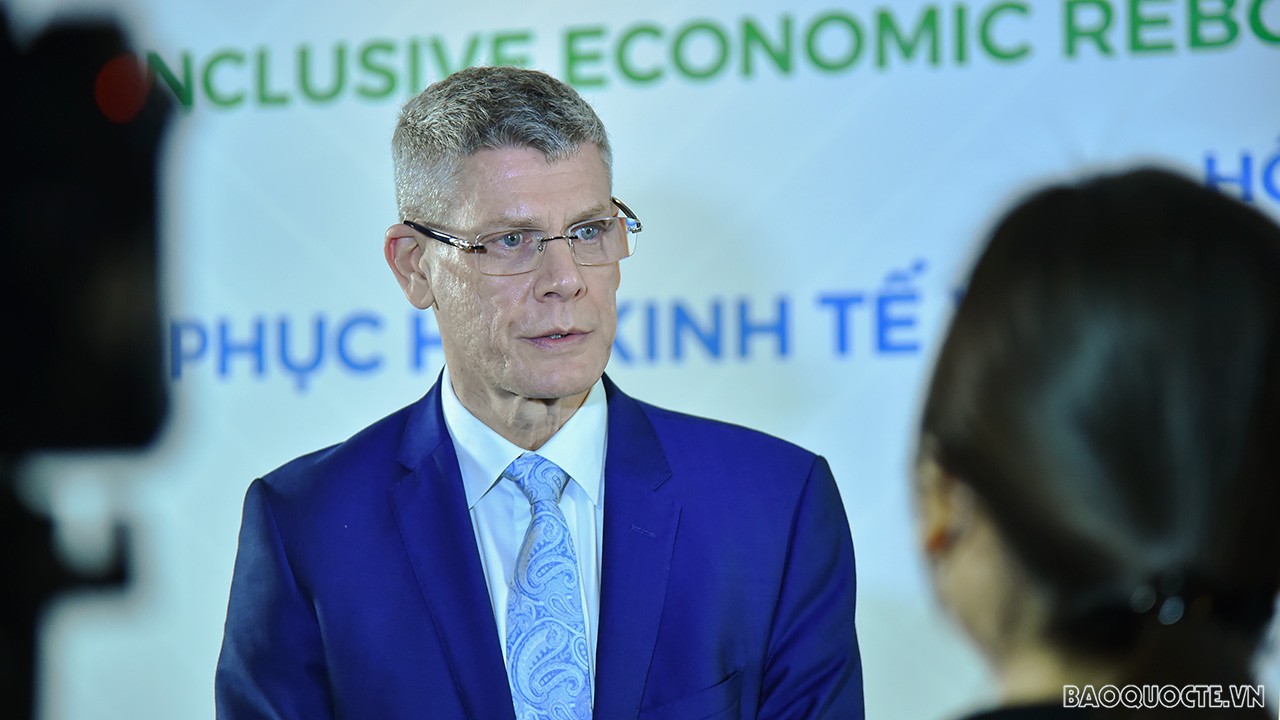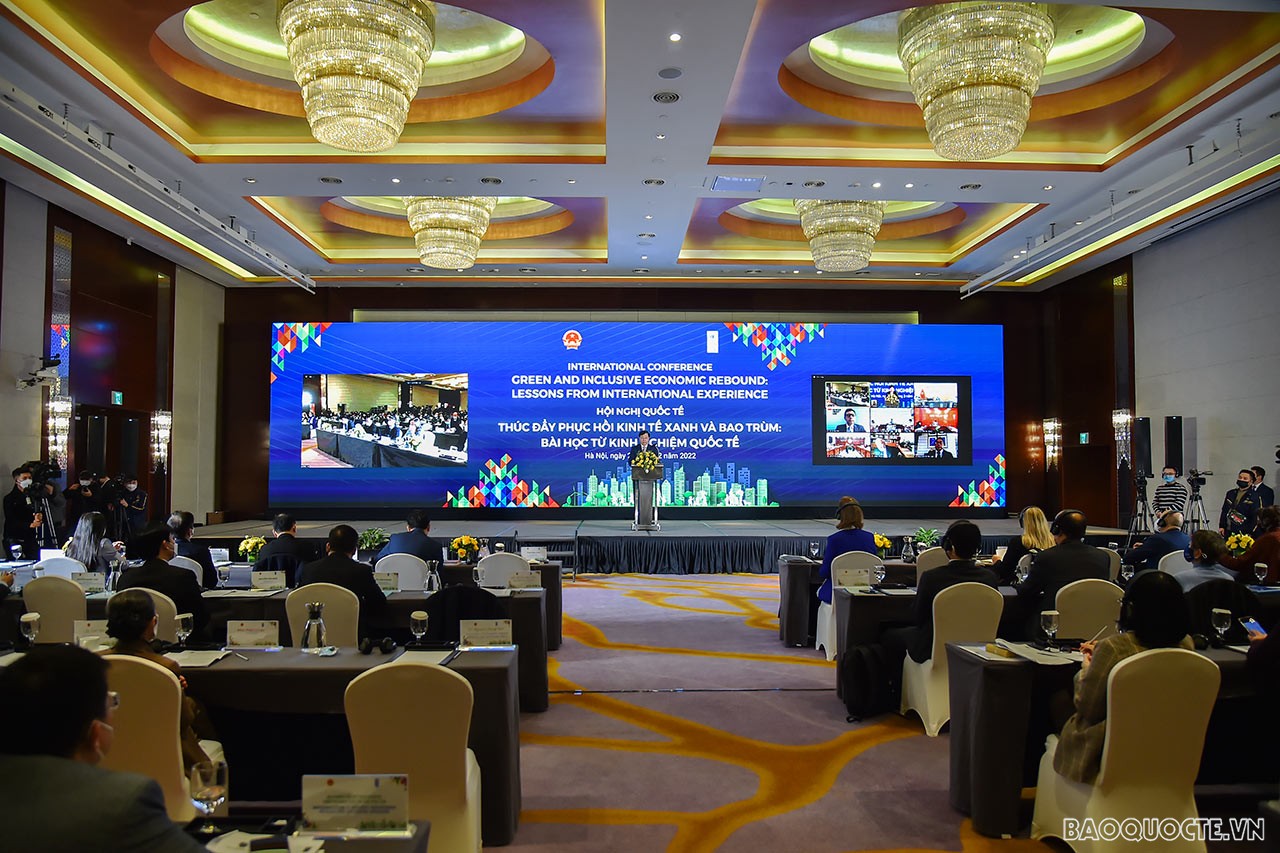
Viet Nam need recover economy in a sustainable way: UNDP senior international economist
Latest
 |
| Prof. Dr. Jonathan Pincus, UNDP senior international economist. (Photo: Tuan Anh) |
On the sidelines of the International Conference “Green and Inclusive Economic Rebound: Lessons from International Experience” in Ha Noi on February 25, Prof. Dr. Jonathan Pincus expressed his views on challenges and advantages of Viet Nam in the process of green and inclusive economic rebound.
How do you evaluate the importance of the conference? What are challenges in pursuing green growth?
The conference is about how to achieve a green and inclusive recovery from COVID-19. So the idea of the Ministry of Foreign Affairs (MOFA), Ministry of Planning and Investment (MPI) and UNDP is to invite speakers from around the world, from governments and from academia, businesses to talk about their experiences and their plans for a green and inclusive recovery.
The conference's main point is that as we emerge from two years of COVID-19 pandemic, we have the opportunity to rebuild the economy in a more sustainable way. We know that we are coming up to a period when we have to accelerate the transition from the old way of development which did not really take much consideration of our long-term impact on the environment to adopt a new way of thinking, a way of thinking where we don’t see the environment and the economy and health as trade-offs but we see them as mutually supporting each other.
So when we establish economic growth and prosperity, we need to do it in a way that is sustainable for the climate and for other aspects of sustainability.
For example, air pollution which is a huge problem in Viet Nam, similarly, water pollution, deforestation, urbanization,... are every aspect that sustainability needs to be at the forefront of our minds as we move into the recovery period.
What is the biggest challenge for Viet Nam in the economic rebound process?
Viet Nam has made a high commitment at the 26th United Nations Climate Change conference (COP26) in Glasgow (UK) last year and that commitment was to achieve net-zero carbon emission by 2050, which is less than 30 years away, so that is a major commitment.
I think one of the biggest challenges that Viet Nam faces is to realize that commitment and also continue to grow economy to achieve prosperity. And that will need a high, massive investment in renewable energy and a very rapid transition away from coal-fired power plants, petroleum power vehicle transportation towards renewable energy, solar, green hydrogen,... in order to achieve net-zero by 2050.
I think that is a huge challenge and it will require literally hundreds of billions of dollars in investment over the next 15 years or so.
 |
| The International Conference “Green and Inclusive Economic Rebound: Lessons from International Experience” held in Ha Noi on February 25. (Photo: Tuan Anh) |
In the short-term, what does Viet Nam need to do to recover its economy after the pandemic?
For the pandemic, I think that the achievement of Viet Nam was the vaccination program which will mean that the pandemic is shorter in Viet Nam.
And we will need to see how it plays out in the next few months, but I think the challenge for the economy for recovery is to recover in a sustainable way both in terms of health and in terms of the environment.
So as we come out of the pandemic, all of the government plans, fiscal policies, and monetary policies need to be rethought and reimagined in order to be consistent with the climate pledge, to be consistent with sustainability.
And I mean that the socio-economic development plan for 2021-2025 needs to be revisited and some of the structural plans also need to be revisited so that they are conducive to achieve the climate goals.
In particular, the power development plan (PDP8) which still has quite a lot of coal-fired power plant investment, although we haven’t seen the final version of that plan yet, but I think that is a big challenge for the short-term is how to generate the power that Viet Nam needs but with less reliance on coal, even before the 2030.
In your opinion, what are the advantages and opportunities of Viet Nam for sustainable economic rebound?
Viet Nam is a very open economy, a very successful trading economy, an economy that has managed to increase exports even during the pandemic. Viet Nam's exports are of a wide range of products, not just electronics, and garments and shoes but also agricultural products.
I think the trait of Viet Nam is export performance. In the future, Viet Nam needs to strengthen that export performance, in other words, to export more high value-added commodities from agriculture and from manufacturing.
Another challenge and opportunity is the restarting tourism. Tourism is a very important part of the economy, a lot of jobs depend on tourism and it has been completely shut down for 2 years. So I think that restarting tourism in a safe way but as quickly as possible is also truly important.
Thank you so much!
| "The biggest question to the Vietnamese Government after the COVID-19 pandemic lies with not only recovery but how to recover... With the strong commitments at the COP26, the answer for the Vietnamese Government is quite clear that is green and inclusive recovery", Deputy Prime Minister Pham Binh Minh said. |





















